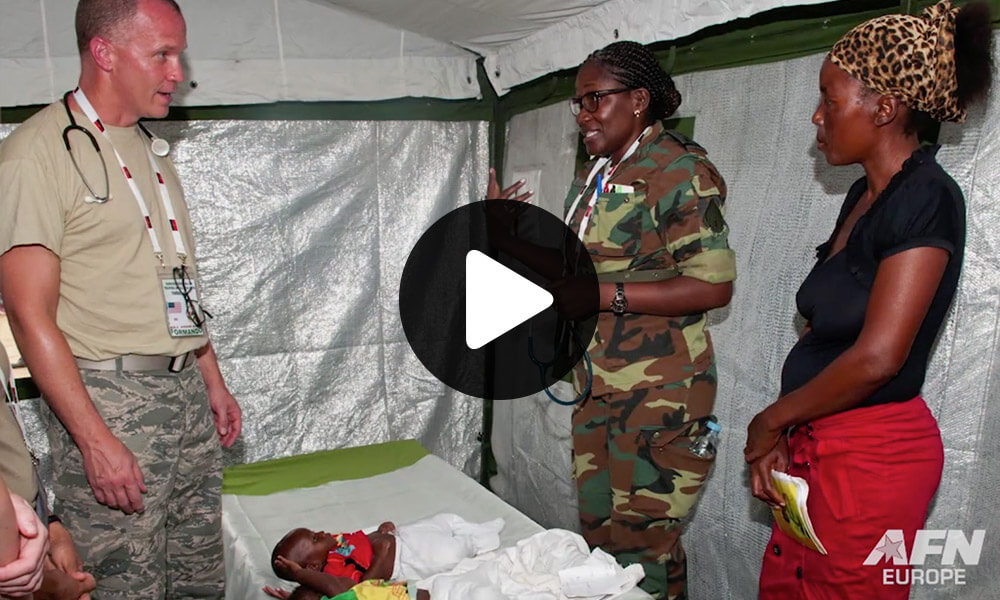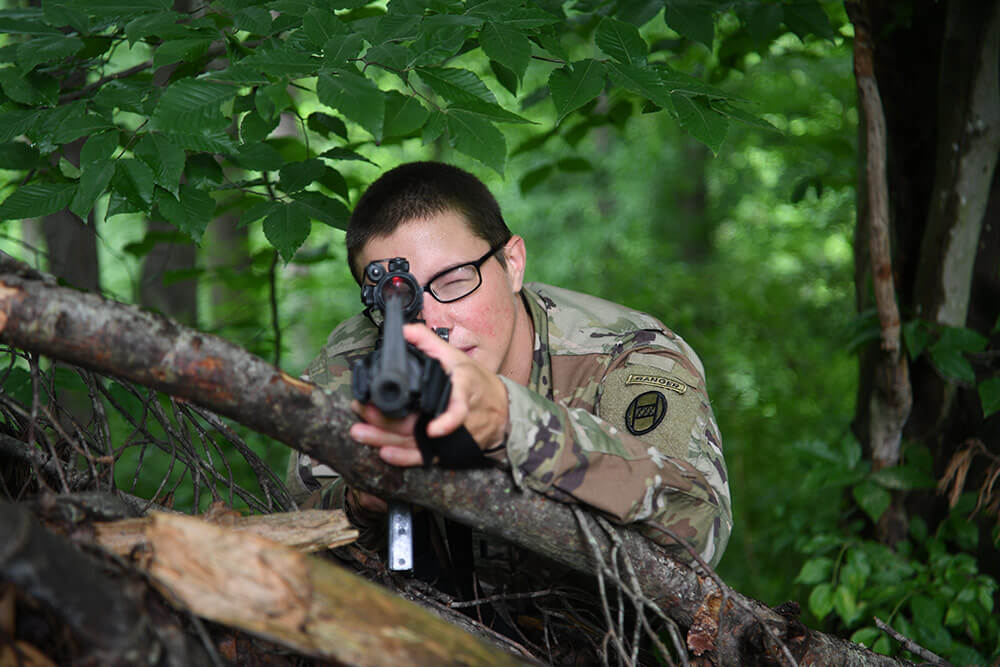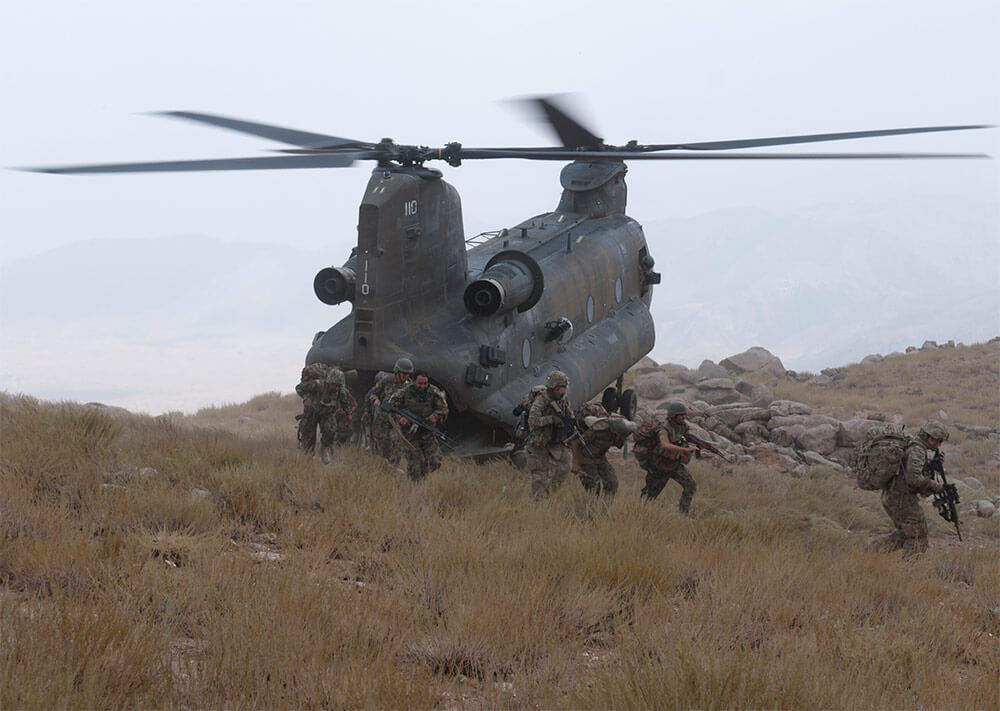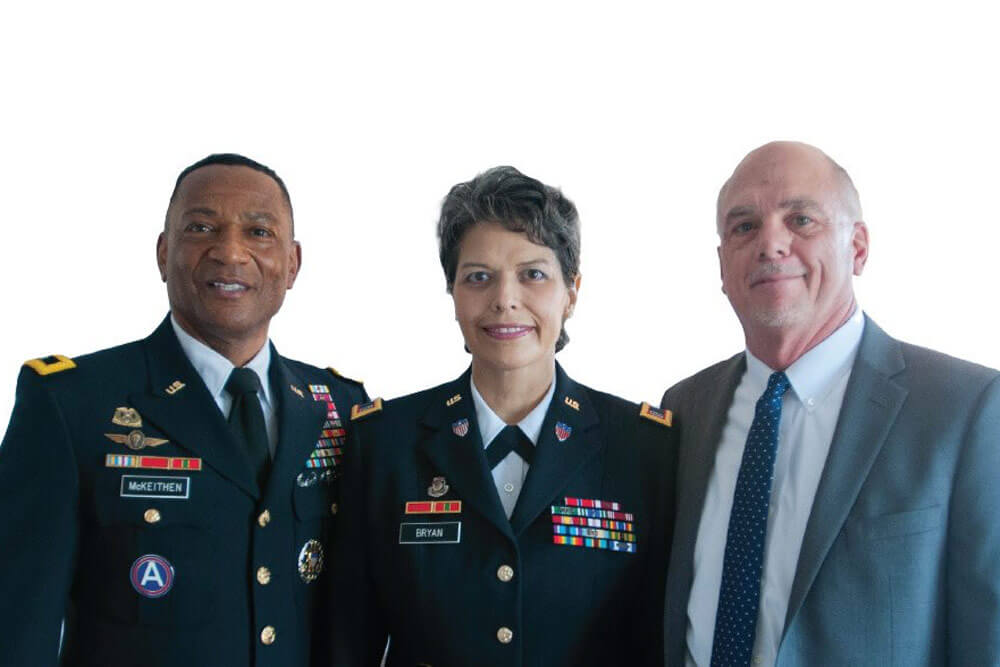PAMBALA 2017 — A Historic Medical Engagement
Soldiers of the Ohio National Guard made history by participating in a first-of-its-kind training exercise in the Bengo Province of Angola.
The exercise, dubbed PAMBALA 2017, was a combined medical exercise between Angolan, Serbian and American forces. Hosted by the Republic of Angola, the exercise marked the first time the United States has been invited to participate in an engagement with the Republic of Angola.
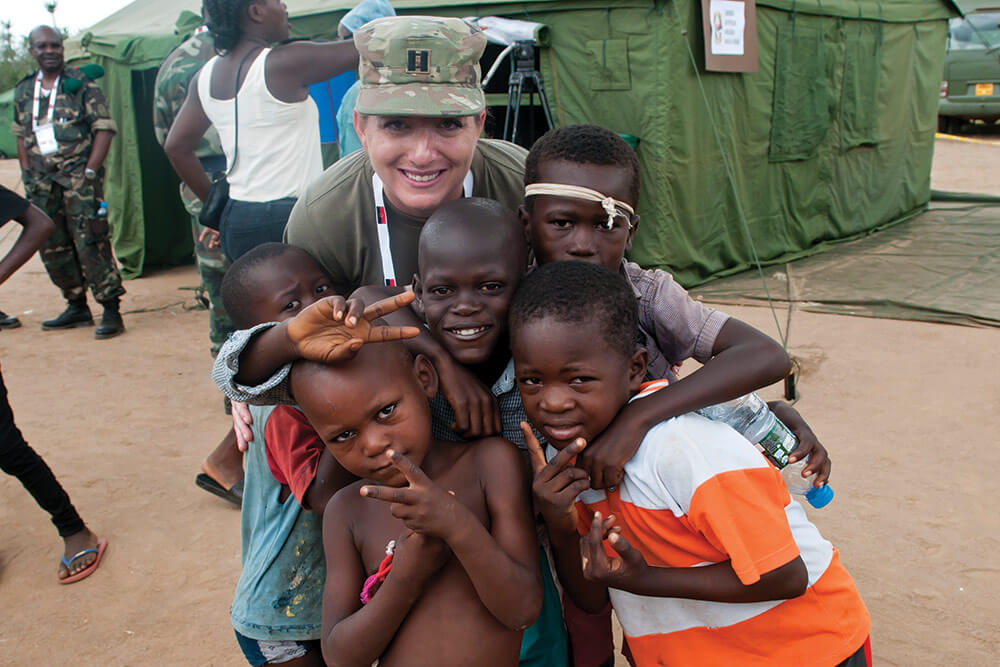
Three years in the making, PAMBALA came to fruition Dec. 4–15, 2017. The engagement was made possible thanks to the Ohio National Guard’s 11-year partnership with the Republic of Serbia. The Republic of Angola invited the United States to participate in the exercise through a trilateral agreement between the Angolan Armed Forces, Serbian Armed Forces and the Ohio National Guard.
“We were expanding our relationship with Serbia by incorporating medical missions,” said Officer in Charge (OIC) CPT Amanda Harder of the Ohio Army National Guard Medical Detachment. “We spent two previous years in Serbia doing Guard care, where we would go out to the field with the Serbian providers and treat Serbian [citizens]. Then, we were able to do the same thing in Angola.”
As OIC, CPT Harder had an integral role in the planning and execution of PAMBALA.
“I was the planner for the whole mission,” said CPT Harder. “It took longer to plan because there are three very different countries coming together to plan one event.”
During the many concept development meetings that led up to the event, CPT Harder and her counterparts from Serbia and Angola worked to ensure the exercise would be mutually beneficial for all parties.
“We went over what the Angolans [wanted] us to support and what exchange they wanted to have. That’s when we came up with the two-phase concept,” CPT Harder explained. “Phase one was the subject matter expert exchange. The second was the field clinic where the Ohio Army and Air National Guard, Serbian and Angolan medical providers all came together and conducted a knowledge exchange of best practices for tropical diseases in the area.”
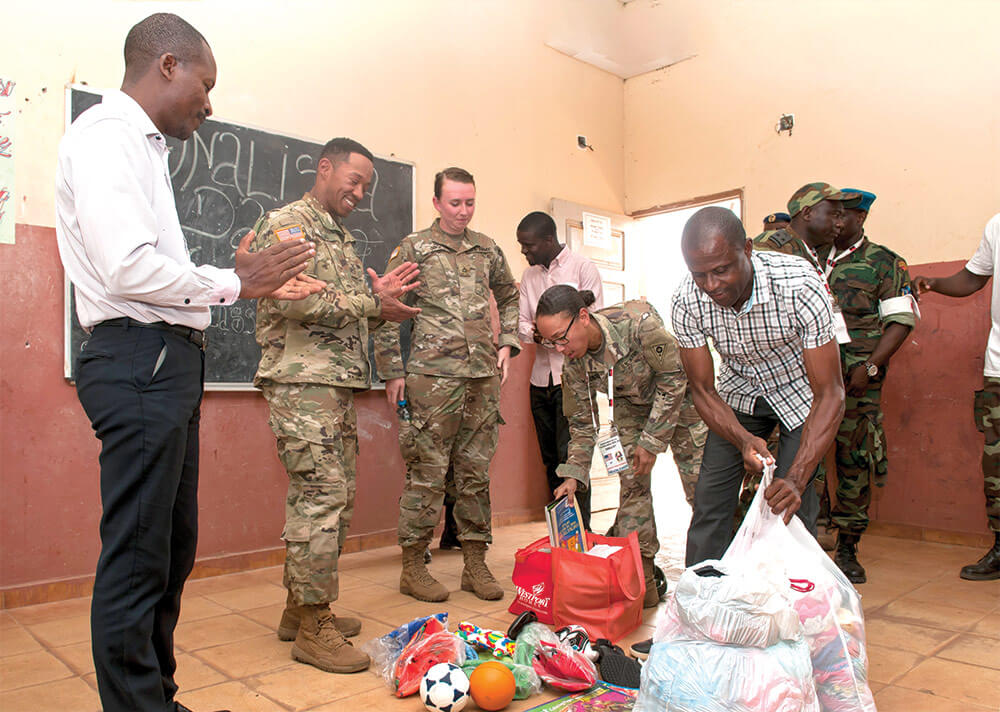
PAMBALA included more than 400 military personnel from Ohio, Serbia and the Republic of Angola. It also included observers from Mali, Botswana, South Africa and Cote d’lvoire; and experts from the United States Agency for International Development and Centers for Disease Control and Prevention. Angolan infectious disease specialists also participated by providing training to U.S. and Serbian service members on endemic tropical diseases, like malaria and dengue.
“For Angola, this exercise will increase the national capacity to respond to hemorrhagic [fevers],” said Col. Marlene Fonseca of the Angolan Armed Forces, chief of staff for the PAMBALA exercise. “If there is an outbreak in Angola, it will be of international concern because [hemorrhagic fevers] are very contagious diseases.”
Hemorrhagic fevers are a group of infectious diseases that interfere with the blood’s ability to clot. They are spread through contact with infected animals, people or insects.
While Angola took the lead on the exercise, both Ohio and Serbia provided expert advice on dealing with contagious outbreaks.
“Our role here was to assist our Angolan friends,” said Lt. Col. Aleksandar Radunovic, commander of the PAMBALA exercise for the Serbian Armed Forces. “They had the primary, leading role in examining patients. Our role was to discuss the patients and different approaches to [their care], but the final decision for treatment was made by the local doctors.”
Lt. Col. Radunovic went on to say, “I think the most important part of this combined engagement was working together to interchange our knowledge and our experiences – to see the ways other people are doing things. It is very useful for us to learn the different [approaches to] solve problems. Every approach is good for improvement.”
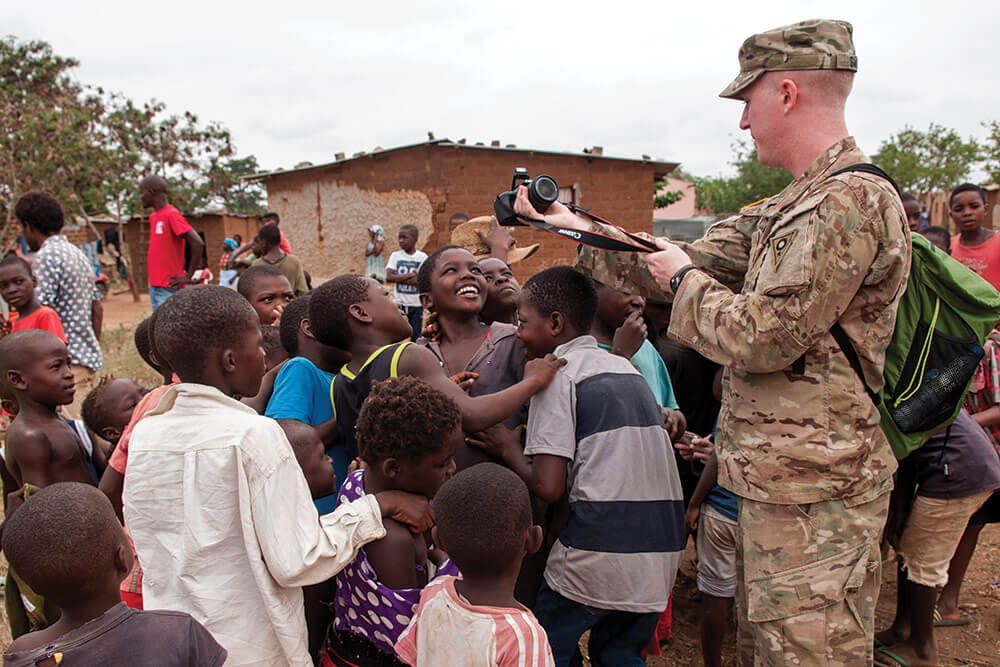
PAMBALA‘s two-phase approach proved successful in accomplishing the goal of fostering a joint knowledge exchange.
The first phase was an educational training on disease containment and management, tropical diseases and the prevention of hemorrhagic fevers like Ebola and Yellow fever. Soldiers from the Ohio National Guard taught classes on disease containment and disaster response. They also exchanged information about preventative medicine and how environmental hazards, such as water supply issues, can create risks. As part of the knowledge exchange, members from the Angolan Armed Forces taught classes on tropical diseases.
While U.S. medical schools educate medical students on many of the diseases discussed at PAMBALA, such tropical diseases are typically not prevalent in the United States. Nonetheless, U.S. Army medics need experience in dealing with the diseases since U.S. Soldiers have the potential to be exposed to them during deployments. This made PAMBALA ideal, as it provided Army National Guard medics the opportunity to gain practical, hands-on lessons and applications in an environment where the diseases are largely present.
“I was able to learn a lot,” said SSG Ashley Maldonado of the Ohio Army National Guard Medical Detachment. “We learned the different stages [of tropical diseases], how to recognize them and how they treat those diseases in Angola.”
Phase one of the training took an all-hazards approach that can be applied to any infectious disease situation.
PAMBALA’s U.S. NCOIC SSG Jeron Ellis of the Ohio Army National Guard Medical Detachment explained that, “The training translates anywhere. If we ever had a big outbreak of any kind in the U.S. – whether it be Ebola or any kind of disease – we learned how we would go about dealing with that.”
Phase two of PAMBALA consisted of clinical operations missions. Military medical personnel from Angola, Serbia and Ohio operated field hospitals in the villages of Vale de Paraiso and Ceramica. The hospitals focused on providing services for preventative care, dermatology, family practice, pediatrics, dentistry, optometry, gynecology and obstetrics.
During the three days of clinical operations, 3,252 patients were treated and 15 patients were evacuated for further care.
Between phases one and two, participants enjoyed a little downtime with a cultural day that consisted of a cookout for both the military participants and the locals from surrounding villages.
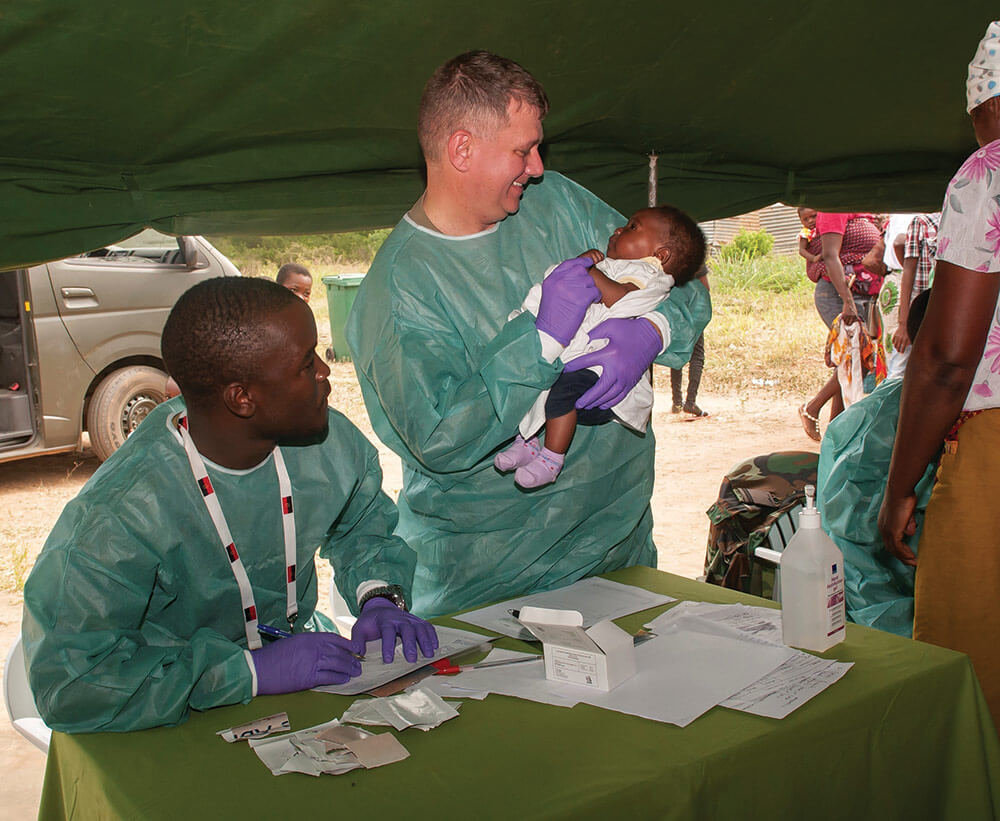
“One of the local kids was teaching a group of our Soldiers some of their bottle cap games,” SSG Maldonado said. “It was just so welcoming with them showing us some of their traditions and things that they do.”
“I loved playing with the kids,” said SSG Ellis. “We would go into the villages and play soccer with the kids. That was always fun for me.”
A key benefit of any State-partnership exercises is the opportunity for Soldiers to strengthen communications skills and discern creative ways to effectively convey information to allies who may not speak the same language or use the same protocols. It was no different at PAMBALA.
“One of the valuable lessons that came out of it was how to work and communicate with multiple cultures,” CPT Harder said. “Me, the Serbians and the Angolans had never worked in that capacity before, so there was a lot of communication that had to be done. We needed to have an understanding of where all parties were coming from.”
Despite language and cultural barriers, participants found ways to facilitate a successful exercise.
“We only had a few translators,” explained SSG Ellis. “While you are in the village, you are trying to communicate with people and you have to find other ways to portray what you want to say or to understand what they are trying to tell you. But, somehow you make it happen. And it’s that much better once you figure [out] what you are trying to say to each other without speaking the same language.”
PAMBALA’s final training consisted of the Angolan military executing a notional exercise based on learning gained during the knowledge exchange from phase one of PAMBALA. The simulation involved an infectious disease outbreak where the Angolans demonstrated their newly developed response and containment plans for a hemorrhagic epidemic.
“To see everything come full circle was really [gratifying],” said CPT Harder.
PAMBALA culminated with a closing ceremony put on by the joint forces of the Angolan military.
“My favorite part of the event would definitely be the final training exercise,” said SSG Ellis. “And not just the exercise itself, which was amazing, but the way that they celebrated after the event was over. They had all of their different branches there – their air force, their navy, their police department, their fire department – so just seeing them all together to celebrate this event was just amazing to witness.”
“It was a huge celebration,” SSG Maldonado explained. “They showed us their culture and how they celebrate. They had us all join in and it was a great experience.”
As a show of gratitude and to celebrate the bonds formed during PAMBALA, an exchange of flags between senior military leaders from Serbia, the United States and the Republic of Angola was included in the closing ceremony. It served to symbolize the event’s success in achieving its goal of forging increased dialogue and stronger bonds between nations.
“It definitely exceeded my expectations,” said SSG Maldonado. “There was a lot of time and effort put into everything, and I don’t think we could have asked for a better outcome.”
“I think everything went better than planned,” added CPT Harder. “It’s funny because doctors are different all over the world, but in the clinic, everyone just kind of fell right into place. They knew what they were doing and they knew what [had to be done]. It was great.”
PAMBALA was a first-time exercise that sets an excellent example of what positive, international collaboration and exchange can look like. While the Ohio National Guard is partnered with Serbia, they leveraged that partnership to help further develop their relationship with Angola.
“The overarching [intent] is the continued building of a relationship with Angola through the relationship we already have with Serbia,” CPT Harder explained. “I’m really looking forward to doing more missions in the future trilaterally. It was a great experience for everybody involved.”
BY STAFF WRITER Tatyana White-Jenkins
Ohio National Guard photos by SSG Wendy Kuhn
